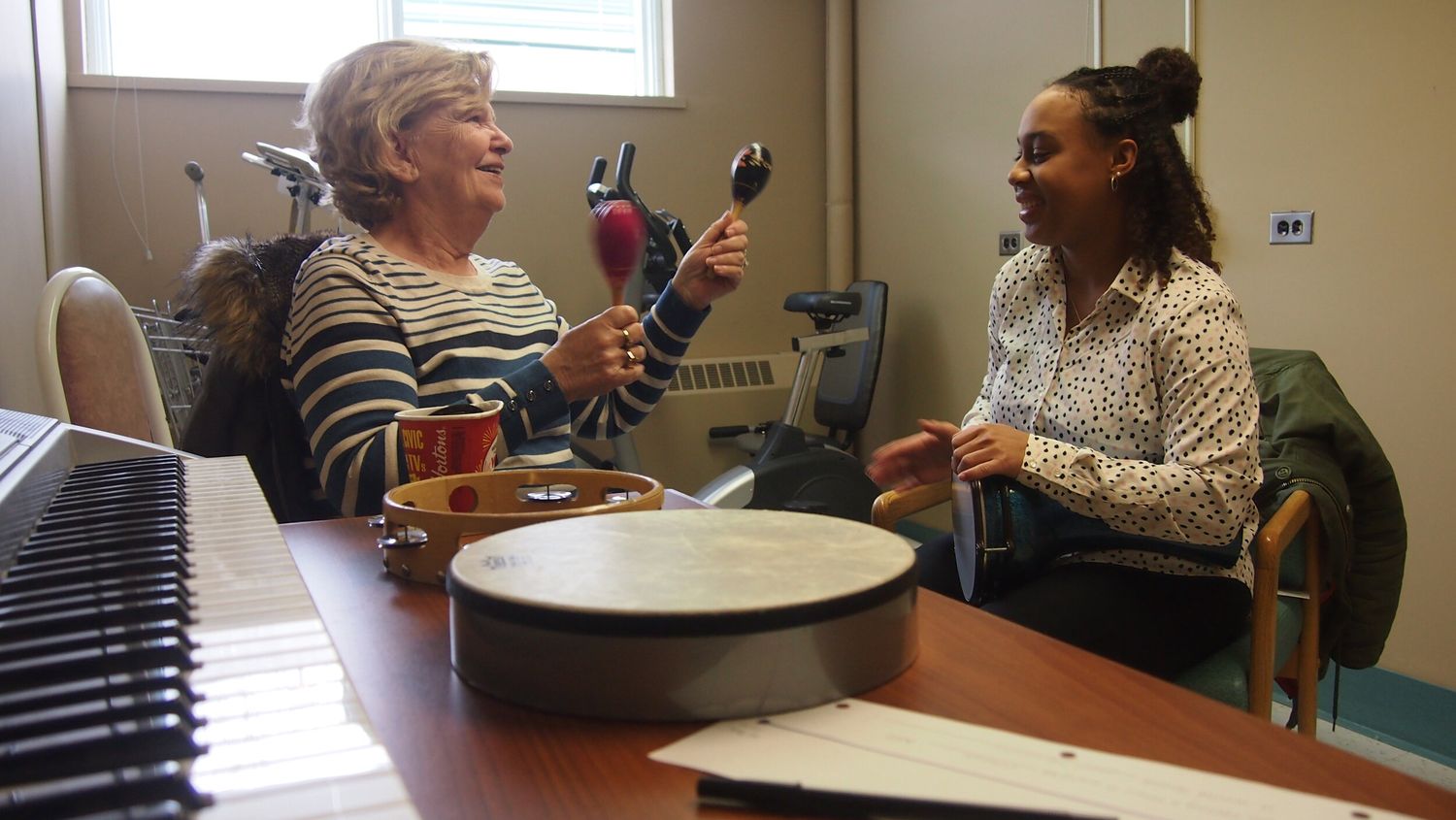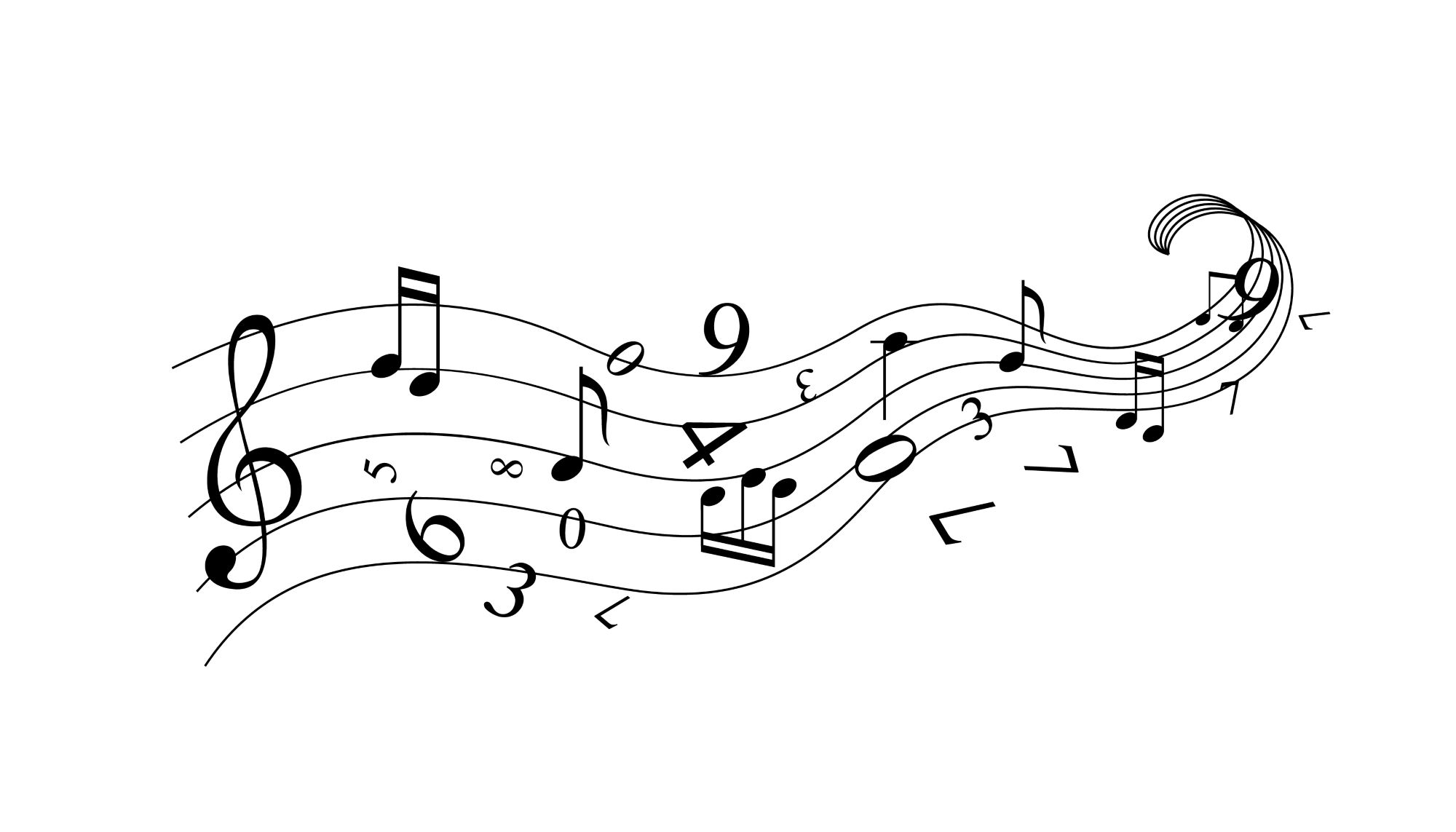Home>Events & Info>Music Therapy>How Does Music Therapy Help Intensive Care Unit Patients


Music Therapy
How Does Music Therapy Help Intensive Care Unit Patients
Published: February 2, 2024
Discover how music therapy positively impacts patients in the intensive care unit. Enhance their healing process with the soothing effects of music.
(Many of the links in this article redirect to a specific reviewed product. Your purchase of these products through affiliate links helps to generate commission for AudioLover.com, at no extra cost. Learn more)
Table of Contents
- Introduction
- The Role of Music in Healthcare
- Understanding Intensive Care Unit (ICU) Patients’ Needs
- What is Music Therapy?
- Benefits of Music Therapy for Intensive Care Unit Patients
- Reduction of Stress and Anxiety
- Pain Management
- Improved Sleep Quality
- Enhanced Emotional Well-being
- Communication and Expression
- Music Therapy Techniques for ICU Patients
- Live Music Interventions
- Recorded Music Interventions
- Patient-Preferred Music Selection
- Considerations for Implementing Music Therapy in the ICU
- Training and Qualifications of Music Therapists
- Collaboration with Medical Staff
- Integration into Overall Treatment Plans
- Conclusion
Introduction
Music has been an integral part of human culture since ancient times. It has the power to uplift our spirits, evoke emotions, and create a sense of connection. But did you know that music can also be a powerful tool in healthcare? Music therapy, a well-established practice in the field of allied health, utilizes the therapeutic properties of music to improve the physical, emotional, and psychological well-being of individuals.
In the context of healthcare, music therapy has gained recognition for its ability to provide comfort and support to patients, particularly those in intensive care units (ICUs). The ICU is a challenging environment where patients often experience high levels of stress, anxiety, and pain. The unique qualities of music, such as its ability to engage multiple sensory pathways and evoke memories, make it a valuable therapeutic intervention for ICU patients.
This article explores the role of music therapy in assisting ICU patients on their road to recovery. We will delve into the benefits of music therapy, discuss various techniques used, and explore the considerations for implementing this therapy in the intensive care setting.
The Role of Music in Healthcare
Music has long been recognized for its positive impact on human health and well-being. It has the power to affect our mood, reduce stress, and even promote physical healing. In the context of healthcare, music has been integrated into various settings as a complementary therapy to enhance patient outcomes and quality of life.
When it comes to utilizing music in healthcare, there are different approaches. Passive music listening involves playing recorded music in the background to create a calming and relaxing environment. Active participation in music-making, such as singing or playing an instrument, allows individuals to engage more directly with the therapeutic benefits of music.
Research has shown that music can have a profound impact on a wide range of health conditions, including cardiovascular disorders, psychiatric disorders, chronic pain, and neurological disorders. It has been found to reduce anxiety, improve mood, increase pain tolerance, and enhance cognitive function.
In healthcare settings, music therapy is implemented by trained music therapists who use music as a therapeutic tool to address specific goals and objectives. Music therapy is an evidence-based practice that is tailored to the unique needs of each individual. It involves creating a supportive and therapeutic environment where the patient can actively engage with the music and the therapist.
Music therapy has been successfully integrated into various healthcare settings, such as hospitals, rehabilitation centers, and palliative care facilities. It has been shown to have a positive impact on patients’ emotional well-being, reduce anxiety and pain, and improve physical function and quality of life.
As the field of healthcare continues to recognize the importance of holistic care, music therapy has gained prominence as a valuable adjunct to conventional medical treatments. Its non-invasive nature and universal appeal make it accessible to individuals of all ages and abilities.
Music is a universal language that has the power to connect and heal. By harnessing its therapeutic potential, healthcare professionals can enhance patient care and promote overall well-being.
Understanding Intensive Care Unit (ICU) Patients’ Needs
The Intensive Care Unit (ICU) is a specialized area in a hospital where individuals with severe and life-threatening illnesses receive intensive medical care and monitoring. ICU patients often face a multitude of challenges and have unique needs that must be addressed to support their recovery.
One of the primary needs of ICU patients is managing their physical health. These patients require close monitoring of vital signs, administration of complex medications, and often undergo invasive medical procedures. Pain management is also crucial as many ICU patients experience intense pain and discomfort.
Another significant need of ICU patients is managing the emotional and psychological toll of their critical condition. Being in the ICU can be overwhelming and distressing, not only for the patients themselves but also for their families. ICU patients may experience fear, anxiety, depression, and a sense of isolation.
ICU patients also commonly face challenges related to their sensory experiences. The ICU environment can be noisy, bright, and filled with unfamiliar sounds and equipment, which can contribute to sensory overload and heightened stress levels. The disruption of normal sleep patterns is another common issue faced by ICU patients, which can further impact their recovery and overall well-being.
Communication is another crucial aspect in understanding the needs of ICU patients. Many patients in the ICU may have difficulty speaking or communicating due to intubation or other medical interventions. This can lead to feelings of frustration and helplessness, as well as hinder effective communication with healthcare professionals and loved ones.
Recognizing these specific needs of ICU patients is essential in providing comprehensive and patient-centered care. Integrating music therapy into the care plan for ICU patients can address these needs in a holistic and supportive manner.
The unique qualities of music, such as its ability to connect on an emotional level and evoke soothing and familiar sensations, make it a valuable therapeutic tool for ICU patients. Music therapy can address both the physical and emotional needs of individuals in the ICU, helping them manage pain, reduce anxiety, improve sleep quality, and enhance overall well-being.
By understanding the complex needs of ICU patients and recognizing the potential benefits of music therapy, healthcare providers can create a more compassionate and effective approach to care in the intensive care setting.
What is Music Therapy?
Music therapy is a specialized field within the realm of allied health that utilizes music as a therapeutic tool to address physical, emotional, cognitive, and social needs of individuals. It is an evidence-based practice that is facilitated by trained and certified music therapists.
Music therapy involves a systematic process where the therapist assesses the individual’s needs and goals, develops and implements a treatment plan, and evaluates the outcomes. Sessions can be conducted in both individual and group settings, depending on the specific needs and preferences of the client.
During music therapy sessions, a wide range of music-based interventions are employed to engage the client. These interventions may include listening to music, singing, playing musical instruments, improvisation, songwriting, and movement to music.
The therapeutic use of music is based on the idea that music has inherent qualities that can positively impact our physiological and psychological well-being. It can affect our heart rate, breathing, and blood pressure, as well as modulate our emotions and cognitive processes.
In music therapy, the therapist carefully selects and structures the music interventions based on the client’s unique needs and goals. The therapist may use specific musical elements, such as tempo, rhythm, melody, and dynamics, to elicit desired responses and facilitate therapeutic outcomes.
Music therapy can be beneficial for individuals of all ages and abilities, including those with physical disabilities, developmental disorders, mental health conditions, and those facing end-of-life care. It is a flexible and adaptable therapy that can be tailored to the individual’s preferences and capabilities.
It is important to note that music therapy is distinct from passive music listening or recreational music activities. The primary focus of music therapy is on using music intentionally to achieve specific therapeutic goals and promote healing and well-being.
Music therapy has been recognized as a valuable intervention in healthcare settings, including hospitals, rehabilitation centers, and palliative care facilities. It is increasingly embraced as an evidence-based practice that can complement conventional medical treatments and enhance patient outcomes.
By harnessing the power of music and utilizing it in a therapeutic context, music therapy empowers individuals to express themselves, engage with their emotions, and improve their overall quality of life.
Benefits of Music Therapy for Intensive Care Unit Patients
Intensive Care Unit (ICU) patients often experience high levels of stress, anxiety, and physical discomfort. Music therapy has been shown to provide numerous benefits to these individuals, supporting their emotional well-being and promoting physical healing. Here are some of the key benefits of music therapy for ICU patients:
Reduction of Stress and Anxiety: The soothing and calming effects of music can significantly reduce stress and anxiety levels in ICU patients. Music therapy helps create a more relaxed and comforting environment, allowing patients to experience a sense of peace and relaxation amidst the high-stress environment of the ICU.
Pain Management: Music therapy has been found to be effective in managing pain in ICU patients. Listening to music releases endorphins, the body’s natural painkillers, which can help alleviate discomfort and reduce the need for high doses of pain medication. The distraction provided by music also helps divert attention from painful procedures or sensations.
Improved Sleep Quality: ICU patients often face challenges in achieving restful sleep due to the noisy and disruptive nature of the ICU environment. Music therapy can help create a calming atmosphere and promote relaxation, leading to improved sleep quality for patients. The rhythmic and soothing nature of music can facilitate the transition into a more peaceful and restorative sleep state.
Enhanced Emotional Well-being: Being in the ICU can be emotionally challenging for patients, leading to feelings of fear, sadness, and frustration. Music therapy provides a means for emotional expression and connection, allowing patients to explore and process their emotions. Engaging with music, whether through listening or active participation, can boost mood, uplift spirits, and provide a sense of comfort and support.
Communication and Expression: Many ICU patients are unable to communicate verbally due to intubation or medical procedures. Music therapy offers an alternative form of communication and self-expression. Patients can use music to convey their emotions, preferences, and needs, fostering a sense of empowerment and agency in their care.
These benefits of music therapy contribute to an overall improved patient experience in the ICU. By addressing the physical and emotional needs of ICU patients, music therapy can promote relaxation, alleviate distress, and support the healing process. The non-invasive and accessible nature of music therapy makes it a valuable addition to the range of therapeutic interventions available in the ICU setting.
Reduction of Stress and Anxiety
The intensive care unit (ICU) can be an extremely stressful and anxiety-inducing environment for patients due to the critical nature of their conditions and the constant monitoring and interventions they undergo. Music therapy has proven to be beneficial in reducing stress and anxiety levels among ICU patients, offering them a valuable source of comfort and emotional support.
Listening to calming and soothing music has a profound impact on the autonomic nervous system, helping to activate the relaxation response and counteract the body’s stress response. The slow tempo, soft melodies, and gentle harmonies of certain types of music can induce a sense of tranquility and promote deep relaxation.
Music has the ability to engage multiple sensory pathways simultaneously, creating a multisensory experience that can distract from distressing thoughts and emotions. When patients are engrossed in the music, they are more likely to shift their attention away from anxious or worrisome thoughts, providing respite from the psychological burden they may be experiencing.
Additionally, music has a powerful impact on emotions. It can evoke feelings of joy, nostalgia, peace, or serenity, which can help counteract the negative emotions associated with being in the ICU. Music therapy allows patients to choose music that resonates with them personally, which increases their sense of control and empowers them to create a more positive emotional state.
A study published in the Journal of Critical Care demonstrated the effectiveness of music therapy in reducing anxiety levels among ICU patients. The study found that patients who received music therapy interventions experienced a significant decrease in anxiety and reported feeling more relaxed and at ease.
Music therapy provides a safe and non-invasive intervention for stress and anxiety reduction in the ICU. It can be easily integrated into the daily routine of patients, offering them a reprieve from their worries and a means to find solace in the midst of a challenging environment.
Moreover, the presence of a trained music therapist during music therapy sessions further enhances the effectiveness of stress and anxiety reduction. The therapist can create a supportive and comforting atmosphere, establishing a therapeutic relationship with the patient and tailoring the music interventions to their specific needs and preferences.
By leveraging the power of music, healthcare providers can help alleviate stress and anxiety among ICU patients, creating a more calming and nurturing environment for their recovery. Music therapy offers a holistic approach to care, addressing not only the physical ailments but also the emotional well-being of patients, leading to improved outcomes and a higher quality of life.
Pain Management
Pain is a common and significant challenge faced by patients in the intensive care unit (ICU). Managing pain effectively is vital for the well-being and comfort of ICU patients. Music therapy has demonstrated its effectiveness as a non-pharmacological intervention for pain management, offering a safe and accessible approach to alleviate pain and reduce the reliance on high doses of pain medication.
Listening to music has been shown to release endorphins in the brain, which act as natural painkillers. This can lead to a reduction in perceived pain and discomfort among ICU patients. The distraction provided by music also helps divert attention away from the pain, allowing patients to focus on the pleasurable and engaging aspects of the music instead.
Music therapy interventions can be tailored to target specific pain management goals. For example, slow and calming music can induce relaxation and facilitate a sense of comfort, which can help alleviate both physical and emotional pain. By contrast, more upbeat and energizing music can serve as a distraction and provide a positive focus for patients, diverting their attention away from the pain sensations.
Research has consistently demonstrated the efficacy of music therapy in reducing pain in various healthcare settings, including the ICU. A 2016 study published in the Journal of Critical Care Medicine found that music therapy interventions significantly reduced pain and decreased the frequency of analgesic administration among ICU patients compared to a control group.
Furthermore, music therapy can be particularly beneficial for ICU patients who may experience anxiety or fear related to painful medical procedures. By incorporating music therapy before, during, and after these procedures, patients can feel more relaxed and mentally prepared, which may contribute to a reduction in perceived pain intensity.
It is important to note that music therapy should be utilized as a complementary intervention alongside traditional pain management strategies, rather than a standalone replacement. By combining music therapy with pharmacological approaches, healthcare providers can achieve optimal pain relief and enhance the overall well-being of ICU patients.
Music therapy in pain management is adaptable and can be customized to match the preferences and needs of individual patients. Music therapists work closely with patients to select music that resonates with them, ensuring a personalized and engaging experience. This not only enhances the therapeutic benefits of music but also empowers patients to actively participate in their pain management process.
Through music therapy, healthcare providers can offer ICU patients a holistic approach to pain management that integrates the power of music with traditional medical interventions. By reducing pain levels, music therapy contributes to a more comfortable and supportive healing environment for ICU patients, promoting their overall well-being and aiding in the recovery process.
Improved Sleep Quality
Sleep disruption is a common issue faced by patients in the intensive care unit (ICU). The constant noise, bright lights, medical interventions, and varying routines can make it challenging for patients to obtain restful and rejuvenating sleep. Music therapy has emerged as a valuable tool to enhance sleep quality among ICU patients, providing a soothing and conducive environment for rest.
The calming and relaxing effects of music have been shown to promote sleep in various healthcare settings. Soft, slow-tempo music can help induce a state of relaxation, leading to a more rapid onset of sleep and improved sleep continuity. The rhythmic patterns and gentle melodies of certain types of music can lull patients into a tranquil state, creating the optimal conditions for restorative sleep.
Additionally, music therapy provides a pleasant distraction from the stressful environment of the ICU, helping patients to shift their focus away from their concerns and worries. By engaging with the music, patients can detach from their current circumstances and enter into a more serene mental state, facilitating the transition into sleep.
A study published in the Journal of Clinical Nursing examined the effects of music therapy on sleep quality among ICU patients and found a significant improvement in sleep efficiency, total sleep time, and sleep depth compared to a control group. The incorporation of music therapy interventions resulted in fewer sleep disturbances and an enhanced subjective perception of sleep quality.
Music therapy sessions can be tailored to the individual preferences of patients, allowing them to choose music that resonates with them personally. This personalization creates a sense of comfort and familiarity, fostering a supportive and relaxing atmosphere conducive to sleep.
It is important to note that music therapy for sleep improvement is not limited to passive music listening. Music therapists can utilize various techniques, such as guided imagery, progressive muscle relaxation, and breathing exercises, in conjunction with music to further enhance the sleep-promoting effects.
By incorporating music therapy into the ICU environment, healthcare providers can create a more calming and sleep-friendly atmosphere. Dimming lights, reducing noise levels, and implementing regular music therapy sessions can help establish a routine that signals to patients that it is time to relax and prepare for sleep. This routine approach can help regulate the body’s natural sleep-wake cycle, promoting a sense of stability and aiding in the recovery process.
Improved sleep quality among ICU patients not only enhances their physical well-being but also contributes to their emotional and cognitive functioning. Adequate sleep allows patients to feel more refreshed, mentally alert, and better equipped to participate in their own care and rehabilitation.
Overall, music therapy offers a non-invasive and effective means to address sleep disturbances in the ICU. By incorporating music into the therapeutic regimen, healthcare providers can provide a supportive environment that encourages restful and rejuvenating sleep for ICU patients, helping to optimize their recovery outcomes.
Enhanced Emotional Well-being
The experience of being in the intensive care unit (ICU) can be emotionally challenging for patients. Feelings of fear, anxiety, sadness, and isolation are common, as patients grapple with the uncertainty of their condition and the stress of medical interventions. Music therapy has shown to significantly enhance the emotional well-being of ICU patients by providing a source of comfort, expression, and connection.
Music has a profound impact on our emotions, as it can evoke joy, nostalgia, tranquility, or a range of other emotional responses. Music therapy harnesses this power by providing an avenue for emotional expression and exploration. Through active participation in music-making or passive engagement with carefully selected music, patients can connect with their emotions and navigate their feelings in a safe and supportive environment.
Music therapy sessions allow patients to choose music that holds personal significance to them, evoking memories, and emotions that can be explored and processed. This process of emotional exploration can promote a sense of catharsis and enable patients to experience a sense of relief and release from pent-up emotions.
Furthermore, music has the ability to create a sense of comfort and connection. Listening to familiar music can evoke a sense of nostalgia or remind patients of happier times and loved ones. Participating in group music therapy sessions can foster a sense of camaraderie, allowing patients to engage in a shared experience with others in similar situations. This sense of connection can help combat feelings of isolation and promote a sense of belonging and support.
A study published in the Journal of Advanced Nursing found that music therapy significantly reduced anxiety and depression levels among ICU patients compared to standard care alone. The incorporation of music therapy interventions resulted in increased feelings of relaxation, improved mood, and enhanced overall emotional well-being.
Music therapy provides a unique avenue for emotional expression and connection, particularly for ICU patients who may have limited ways to communicate their thoughts and feelings due to intubation or medical interventions. The non-verbal nature of music allows patients to express themselves and communicate their emotions non-verbally, circumventing the limitations imposed by their condition.
Music therapists, trained in the art and science of music therapy, create a safe and supportive space for patients to engage with music and navigate their emotions. They provide guidance and facilitate the therapeutic process, ensuring that the music interventions align with the emotional needs and goals of each individual patient.
Ultimately, music therapy in the ICU setting offers a holistic approach to care that acknowledges and addresses the emotional well-being of patients. By enhancing emotional well-being, music therapy not only supports the psychological recovery of patients but also contributes to their overall quality of life and aids in the healing process.
Communication and Expression
In the intensive care unit (ICU), many patients face challenges in communicating verbally due to intubation, sedation, or other medical interventions. This can result in a sense of frustration, helplessness, and isolation. Music therapy offers a powerful means of communication and expression for ICU patients, allowing them to connect with others, convey their emotions, and regain a sense of agency in their care.
Music transcends language barriers and offers a universal language that can be understood and experienced by all. Even in the absence of verbal communication, patients can engage with music therapy through active participation, such as singing or playing instruments, or through passive listening. This enables patients to express themselves in ways that may not be possible using traditional forms of communication.
Music therapy sessions provide a structured and supportive environment for patients to engage in non-verbal communication. Patients can use music to convey their emotions, preferences, and needs, providing valuable insights to their healthcare providers, caregivers, and loved ones. The therapist can interpret and respond sensitively to the emotional content expressed through music, fostering a deeper understanding and connection.
Moreover, music therapy can help facilitate communication with loved ones and healthcare providers. Patients who are unable to speak may find solace and comfort in using music to communicate with their families, expressing love, gratitude, or messages of reassurance. The shared experience of music within the therapeutic setting can strengthen the bond between patients and their loved ones, creating space for emotional connection and support.
A study published in the Journal of Music Therapy demonstrated the effectiveness of music therapy in facilitating communication and reducing feelings of frustration among ventilated ICU patients. The researchers found that engagement in music therapy interventions provided patients with an alternative means of communication and enhanced their overall satisfaction with their ability to express themselves.
Music therapists with their specialized training and expertise in communication through music can adapt interventions to meet the unique needs of each patient. They can assess patients’ preferences for specific genres or styles of music and integrate them into the therapy sessions, ensuring a personalized and meaningful experience.
By incorporating music therapy into the ICU setting, healthcare providers can enhance communication and expression for patients with limited verbal abilities. This not only facilitates a deeper understanding of patients’ needs and emotions but also empowers patients to actively participate in their care and decision-making processes. Music therapy offers a powerful tool for promoting connection, empowerment, and emotional well-being among ICU patients.
Music Therapy Techniques for ICU Patients
Music therapy employs a variety of techniques to cater to the specific needs and abilities of ICU patients. These techniques aim to harness the therapeutic power of music and create a supportive environment for patients’ healing and well-being. Here are some of the common music therapy techniques used for ICU patients:
Live Music Interventions: Live music interventions involve a music therapist performing live music for the patient in real-time. The therapist may play an instrument, sing, or use their voice to create soothing melodies and harmonies. This technique allows for a personalized and interactive experience, tailored to the patient’s preferences and emotional needs.
Recorded Music Interventions: Recorded music interventions involve playing carefully selected music for patients. The music can be chosen to match the patient’s preferences, evoke specific emotions, or induce relaxation. Soft and calming music is commonly used to create a tranquil and soothing atmosphere in the ICU.
Patient-Preferred Music Selection: The use of patient-preferred music allows individuals to choose music that holds personal significance for them. This can include favorite songs, genres, or meaningful music from their past. Patient-preferred music can invoke positive emotions, trigger memories, and foster a sense of familiarity and comfort, enhancing the therapeutic effects of the music.
Music-Assisted Relaxation Techniques: Music therapy incorporates relaxation techniques, such as deep breathing exercises or progressive muscle relaxation, coupled with calming music. These techniques help promote relaxation and reduce anxiety and can be especially beneficial for patients who struggle with stress and tension in the ICU environment.
Songwriting and Lyric Analysis: Songwriting and lyric analysis provide opportunities for patients to engage with their emotions and thoughts through the creative process. Patients can write their own lyrics or engage in discussion and analysis of meaningful song lyrics. This technique allows for deep reflection, emotional expression, and the exploration of personal experiences and perspectives.
Improvisation: Improvisation offers patients the chance to engage in spontaneous musical expression. They can freely express themselves through playing instruments, singing, or movement to music. This technique encourages creativity and emotional exploration and can be particularly effective for patients who may have limited verbal communication abilities.
It is important to note that music therapy techniques should be tailored to the individual needs and abilities of each ICU patient. Trained music therapists assess patients’ preferences, emotional states, and therapeutic goals to determine the most appropriate approach for each person. Techniques may be adjusted throughout the course of therapy to accommodate changes in the patient’s condition and progress.
By utilizing various music therapy techniques, healthcare providers can effectively harness the therapeutic potential of music, creating opportunities for emotional expression, relaxation, and connection for ICU patients. These techniques empower patients to actively engage in their healing process and contribute to their overall well-being and recovery.
Live Music Interventions
Live music interventions are a core component of music therapy for ICU patients. These interventions involve a music therapist performing live music for the patient in real-time, creating a personalized and interactive experience that is tailored to the patient’s unique needs and emotional state.
The live music interventions in the ICU setting can take several forms. The music therapist may use various instruments, such as guitar, piano, or flute, to create soothing melodies and harmonies. Additionally, they may incorporate their voice, singing comforting songs or using vocal toning techniques to create a calming and supportive environment.
One of the primary benefits of live music interventions is the immediate and responsive nature of the experience. The therapist can gauge the patient’s reactions and adjust the music accordingly, attuning to the patient’s emotional cues and providing a personalized musical response. This gives patients a sense of validation and connection, as their emotional state is acknowledged and reflected through the music.
Live music interactions also allow for non-verbal communication and expression between the patient and the therapist. The therapist can observe the patient’s responses and tailor the music in the moment, creating a meaningful musical dialogue. This form of non-verbal communication is particularly valuable for ICU patients who may have limited verbal ability due to intubation or medical interventions.
During live music interventions, the therapist focuses on creating a therapeutic and supportive environment for the patient. They consider factors such as tempo, rhythm, melody, and dynamics to elicit specific emotional responses or achieve therapeutic goals. For example, slow and calm music may be played to induce relaxation and reduce anxiety, while more lively and upbeat music can be used to uplift the patient’s mood or encourage movement and engagement.
Research has demonstrated the positive effects of live music interventions for ICU patients. A study published in the Journal of Critical Care investigated the impact of live music therapy on anxiety levels among ICU patients. The study found that patients who received live music interventions experienced a significant decrease in anxiety levels compared to a control group, demonstrating the effectiveness of this intervention in promoting emotional well-being.
Moreover, the presence of a live music therapist provides an opportunity for interpersonal connection and rapport. The therapist’s empathetic presence and musical interactions establish a therapeutic relationship that fosters trust and emotional support for the patient. This relationship can contribute to a sense of safety and encourage patients to actively engage in their music therapy sessions.
Live music interventions offer a dynamic and responsive approach to music therapy in the ICU setting. The personalized and interactive nature of these sessions allows for emotional expression, connection, and a sense of empowerment for patients. By utilizing live music interventions, healthcare providers can enhance the emotional well-being of ICU patients, creating a nurturing and healing environment through the power of live music.
Recorded Music Interventions
Recorded music interventions are a widely used technique in music therapy for ICU patients. These interventions involve playing carefully selected music for the patient, providing a passive and immersive musical experience that can evoke emotions and promote relaxation and well-being.
The use of recorded music offers a flexible and accessible approach to music therapy in the ICU setting. The music therapist curates a collection of songs and pieces that are tailored to the individual patient’s preferences, emotional needs, and therapeutic goals. The choice of music can encompass a variety of genres, styles, and artists to accommodate the diverse tastes and backgrounds of the patients.
The recorded music is played through headphones or speakers, providing a private and personal listening experience for the patient. This allows the patient to immerse themselves in the music without disturbance from the surrounding environment, creating a cocoon of a therapeutic sound journey.
Recorded music interventions have multiple benefits for ICU patients. First and foremost, music has the ability to evoke emotions and trigger memories, providing a powerful avenue for emotional expression and connection. Patients can experience a wide range of emotions, from calmness and joy to nostalgia and contemplation, as they engage with the music that resonates with them personally.
The chosen music is often relaxing and soothing, designed to create a calming atmosphere in the ICU. This helps patients alleviate stress and anxiety and counteract the uncomfortable and high-stress environment they may be experiencing. The peaceful melodies, gentle rhythms, and soft dynamics of the music can induce a sense of tranquility and promote relaxation and well-being.
Recorded music interventions also provide a sense of familiarity and comfort for ICU patients. In a foreign and unfamiliar setting, music can serve as a source of nostalgia and reassurance, reminding the patient of happier times or personal experiences. The familiarity of the music can create a sense of security and connection, establishing an emotional anchor for the patient.
Furthermore, recorded music interventions offer a more easily implementable and consistent approach to music therapy. The therapist can curate playlists that align with the patient’s preferred music and therapeutic goals, providing a standardized intervention that can be easily replicated and adapted for different patients in the ICU.
A study published in the Journal of Nursing Research investigated the effects of recorded music interventions on ICU patients’ physiological and psychological outcomes. The findings showed that patients who received recorded music interventions experienced significant reductions in heart rate, blood pressure, and anxiety levels, demonstrating the effectiveness of this technique in promoting relaxation and overall well-being.
Recorded music interventions provide a safe and non-invasive means of delivering music therapy to ICU patients. The soothing and emotionally engaging nature of the music can promote relaxation, reduce anxiety, and create a comforting and healing environment within the ICU. By incorporating recorded music interventions into the care plan, healthcare providers can harness the therapeutic power of music to enhance the well-being and recovery of ICU patients.
Patient-Preferred Music Selection
One of the key principles of music therapy is the incorporation of patient-preferred music. Patient-preferred music selection involves integrating music that holds personal significance and meaning for the individual receiving care. This personalized approach allows ICU patients to engage with music in a way that resonates deeply with their emotions, memories, and personal experiences.
When patients are given the opportunity to choose their preferred music, it empowers them and provides a sense of control and agency in their healing process. ICU patients often experience a loss of control due to their medical condition and the unfamiliar hospital environment. By inviting patients to select music that they enjoy and connect with on a personal level, healthcare providers honor their individuality and promote a patient-centered approach to care.
Patient-preferred music can encompass a wide range of genres, styles, and artists. It may include favorite songs from their youth, music that evokes specific memories, or music that holds special emotional significance. The chosen music can act as a powerful tool to evoke emotions, facilitate relaxation, and create a sense of comfort and familiarity for the patient.
The use of patient-preferred music in the ICU setting has several benefits. First and foremost, it fosters emotional connection and expression. Listening to music that holds personal meaning can elicit powerful emotional responses, allowing patients to explore and process their emotions. This can be particularly valuable for ICU patients who may face challenges in verbal communication or experience emotional distress related to their medical condition.
Additionally, patient-preferred music can evoke positive memories and associations. Music has a unique ability to transport individuals back to specific moments in their lives, triggering feelings of joy, nostalgia, or contentment. By incorporating music that patients have a personal connection to, healthcare providers create a bridge between the past and present, offering a source of comfort and emotional support.
The impact of patient-preferred music selection in the ICU has been demonstrated in research studies. A study published in the Journal of Advanced Nursing found that ICU patients who listened to their preferred music experienced reduced distress and increased relaxation compared to those who did not have access to their preferred music. This highlights the therapeutic impact that patient-preferred music can have in promoting emotional well-being.
Music therapists play a vital role in facilitating patient-preferred music selection. They work closely with patients to identify preferred songs and genres and curate playlists that align with the therapeutic goals and emotional needs of each individual. The music therapist can guide patients through the process of music selection, providing expertise and understanding while respecting the patient’s unique musical preferences.
By incorporating patient-preferred music into the care plan, healthcare providers can create a more personalized and engaging experience for ICU patients. Patient-preferred music selection allows for emotional connection, promotes relaxation, and contributes to a healing environment that recognizes the individuality and humanity of each patient.
Considerations for Implementing Music Therapy in the ICU
Implementing music therapy in the intensive care unit (ICU) requires careful consideration and collaboration between healthcare providers, music therapists, and the interdisciplinary team. Here are some important considerations to keep in mind when incorporating music therapy into the ICU setting:
Training and Qualifications of Music Therapists: It is crucial to ensure that music therapists providing care in the ICU have the necessary training, certification, and expertise in the field of music therapy. Music therapists should have a comprehensive understanding of the unique needs of ICU patients, as well as the ability to adapt music therapy interventions to suit individual patients and their specific medical conditions.
Collaboration with Medical Staff: Effective integration of music therapy in the ICU requires close collaboration between music therapists and the medical staff. Open communication and mutual understanding between these professionals are key to ensuring that music therapy interventions align with the patient’s medical condition and treatment plan. Regular team meetings and a shared care approach can help foster this collaborative relationship.
Integration into Overall Treatment Plans: Music therapy should be integrated as an integral part of the overall treatment plan for ICU patients. Music therapists work alongside other healthcare professionals to establish goals and outcomes that align with the patient’s medical, emotional, and psychological needs. This integration allows for a comprehensive and coordinated approach to care.
Customization and Flexibility: Each ICU patient has unique needs and preferences, so music therapy interventions should be individualized and adaptable. Music therapists should be able to tailor their approaches and techniques to meet the specific requirements of each patient, adjusting to changes in their condition and emotional state over time.
Equipment and Environmental Considerations: Adequate equipment, such as headphones and music players, should be readily available for implementing music therapy interventions. The ICU environment should also be conducive to the therapeutic experience, with considerations for noise control, privacy, and comfort. Creating a calm and supportive environment enhances the efficacy of music therapy interventions.
Ethical Considerations: Patient privacy and confidentiality are paramount in the implementation of music therapy in the ICU. Music therapists must adhere to ethical guidelines and respect the boundaries of patient autonomy, ensuring informed consent and maintaining confidentiality of personal information disclosed during music therapy sessions.
Evidence-Based Practice: It is important to base music therapy interventions on current research and evidence-based practice. Ongoing evaluation and assessment of the effectiveness of music therapy in the ICU setting should inform treatment protocols and contribute to the continued development of best practices.
Evaluation and Documentation: The impact of music therapy on ICU patients should be regularly evaluated and documented. Objective measurements, such as anxiety levels, pain scores, and emotional well-being, can provide valuable data to assess the effectiveness of music therapy. This documentation can inform quality improvement initiatives and contribute to the body of research supporting the use of music therapy in the ICU.
By considering these factors, healthcare providers can successfully implement music therapy in the ICU, harnessing the therapeutic power of music to enhance patient outcomes, promote emotional well-being, and create a nurturing environment for healing.
Training and Qualifications of Music Therapists
Music therapists who work in the intensive care unit (ICU) undergo specialized training and possess specific qualifications to effectively provide music therapy interventions to patients. Their expertise and skills enable them to navigate the unique challenges and dynamics of the ICU setting. Here are some important aspects to consider regarding the training and qualifications of music therapists:
Educational Background: Music therapists typically hold a bachelor’s or master’s degree in music therapy. They receive comprehensive training in music theory, psychology, human development, research methodology, and therapeutic techniques. Accredited music therapy programs ensure that graduates meet strict educational standards.
Clinical Training and Internship: As part of their education, music therapists undergo clinical training and supervised internships. These experiences provide them with hands-on practice, allowing them to work alongside experienced music therapists and gain practical skills in various healthcare settings.
Certification and Credentialing: Music therapists can obtain certification through the Certification Board for Music Therapists (CBMT) by passing a rigorous examination process. Certification ensures that music therapists have met established competency standards and have a solid understanding of the principles and practices of music therapy.
Continuing Education: Music therapists engage in ongoing professional development, participating in workshops, conferences, and continuing education courses. This allows them to stay current with advancements in the field, acquire new skills, and deepen their knowledge in areas such as neuroscience, trauma-informed care, palliative care, and ICU-specific interventions.
Understanding of Medical Conditions: Music therapists working in the ICU have a strong understanding of medical conditions commonly seen in critical care settings. They are familiar with ICU procedures, medical equipment, and the impact of various illnesses on patients’ physical and emotional well-being. This knowledge allows them to tailor music therapy interventions to the specific needs and limitations of ICU patients.
Assessment and Treatment Planning: Music therapists possess the skills to assess patients’ needs, formulate treatment plans, and set appropriate goals. They consider patients’ medical conditions, emotional states, preferences, and progress to design individualized music therapy interventions that align with the patient’s overall care plan.
Interdisciplinary Collaboration: Music therapists collaborate with other healthcare professionals, including physicians, nurses, and allied health professionals, to ensure cohesive and integrated patient care. They consult, communicate, and coordinate with the interdisciplinary team, effectively integrating music therapy into the larger scope of the patient’s treatment and recovery.
Adapting Interventions: Music therapists have the ability to adapt their interventions based on the changing needs and conditions of ICU patients. They can modify the music therapy techniques, song choices, and delivery methods to accommodate patients with varying levels of physical and cognitive abilities.
By undergoing rigorous training, certification, and continuing education, music therapists working in the ICU possess the knowledge, skills, and qualifications to provide safe, effective, and evidence-based music therapy interventions. Their specialized training allows them to create a therapeutic and supportive environment that addresses the unique needs of ICU patients, promoting healing, emotional well-being, and improved patient outcomes.
Collaboration with Medical Staff
Collaboration between music therapists and the medical staff is essential for the successful implementation of music therapy in the intensive care unit (ICU). Effective communication and cooperation between these professionals facilitate the integration of music therapy into the patient’s overall care plan and promote positive patient outcomes. Here are some important considerations regarding collaboration between music therapists and medical staff:
Shared Goals and Objectives: Music therapists and medical staff should collaborate to establish shared goals and objectives for patient care. By aligning therapeutic targets, such as reducing anxiety, managing pain, or enhancing emotional well-being, both disciplines can work together to optimize patient outcomes and provide holistic care.
Regular Communication: Frequent and open communication is crucial between music therapists and medical staff. This includes attending interdisciplinary meetings, case conferences, and ward rounds, where music therapists can contribute their expertise and insights. Regular communication allows for ongoing assessment and adjustment of music therapy interventions based on patients’ changing medical conditions.
Understanding Roles and Expertise: Music therapists and medical staff should have a clear understanding of each other’s roles and areas of expertise. Music therapists are knowledgeable about the therapeutic applications of music and possess specialized training in providing music therapy interventions. Conversely, medical staff provides vital medical expertise and insights into the patient’s condition, ensuring that music therapy interventions are tailored and appropriate within the context of their medical care.
Consultation and Collaboration: Music therapists actively consult and collaborate with medical staff to ensure that music therapy interventions are safe and supportive of the patient’s medical needs. Collaboration may involve consulting medical staff regarding a patient’s medical history, current condition, and any contraindications that need to be considered in music therapy planning and implementation.
Integration into Treatment Plans: Music therapists work collaboratively with medical staff to integrate music therapy into the overall treatment plan. By incorporating music therapy interventions strategically, music therapists can optimize the timing and delivery of sessions, ensuring that they align with other medical interventions and do not interfere with critical procedures or treatments.
Evaluation and Documentation: Collaborative efforts extend to the evaluation and documentation of music therapy interventions. Music therapists contribute to the documentation of patients’ progress, communicate outcomes with the medical team, and provide necessary data for quality improvement initiatives. Collaboration in evaluation helps gather evidence on the efficacy of music therapy and contributes to advancing its integration into comprehensive patient care.
Education and Awareness: Collaboration includes fostering education and awareness among medical staff about the benefits and potential applications of music therapy. By sharing research findings, success stories, and case studies, music therapists can help build a deeper understanding and appreciation of how music can contribute to patients’ well-being and enhance their overall care.
Through collaboration with medical staff, music therapists can effectively integrate music therapy into the ICU care team, synergistically blending art and science to optimize patient outcomes. By working together, these professionals can offer patient-centered care that addresses the physical, emotional, and psychological needs of ICU patients, fostering a healing environment and promoting holistic well-being.
Integration into Overall Treatment Plans
The successful integration of music therapy into the overall treatment plans of patients in the intensive care unit (ICU) is vital for optimizing care and promoting positive patient outcomes. By incorporating music therapy as an integral component of the larger treatment plan, healthcare providers can harness the therapeutic benefits of music to enhance the well-being and recovery of ICU patients. Here are some important considerations for integrating music therapy into overall treatment plans:
Collaborative Care Coordination: Effective integration requires collaboration and communication between music therapists and the interdisciplinary healthcare team. Music therapists should actively participate in team meetings, case conferences, and care planning sessions to contribute their expertise and insights. Regular communication and coordination ensure that music therapy aligns with other medical interventions and supports the patient’s overall care goals.
Identification of Patient Needs: Integration begins with a comprehensive assessment of the patient’s needs and goals. Music therapists collaborate with medical staff to identify specific objectives related to pain management, anxiety reduction, emotional support, and overall well-being. By aligning music therapy interventions with these goals, the treatment plan becomes a cohesive and patient-centered approach to care.
Therapeutic Goal Setting: Based on the patient’s needs, music therapists collaborate with the healthcare team to establish specific therapeutic goals that align with the overall treatment plan. These may include reducing pain scores, alleviating anxiety, improving emotional expression, promoting relaxation, addressing sleep disturbances, or enhancing communication. Setting clear and measurable goals helps guide the integration of music therapy interventions.
Tailored Music Therapy Interventions: Music therapists design individualized interventions based on the patient’s unique needs, preferences, and medical condition. The choice of music, techniques used, and session durations are tailored to support the patient’s overall treatment plan. By integrating music therapy interventions in a way that aligns with other medical interventions, healthcare providers ensure a more comprehensive and cohesive approach to patient care.
Timing and Scheduling: Music therapy sessions should be strategically timed and scheduled to complement other medical procedures, treatments, and rest periods. Collaboration with medical staff is essential to ensure that music therapy interventions do not interfere with critical medical interventions or disrupt the patient’s care schedule. By integrating sessions appropriately, it maximizes the benefits of music therapy while maintaining the safety and effectiveness of other treatments.
Monitoring and Evaluation: Ongoing monitoring and evaluation of music therapy interventions are essential to assess their effectiveness and make necessary adjustments. By actively participating in outcome assessments and sharing information with the healthcare team, music therapists contribute to the evaluation of the overall treatment plan. Regular evaluation ensures that music therapy interventions continue to align with the patient’s evolving needs and contribute to the desired outcomes.
Documentation and Communication: Documentation of music therapy interventions and outcomes is essential for effective integration into the overall treatment plan. By documenting assessment findings, intervention strategies, progress notes, and patient responses, music therapists contribute to the patient’s overall medical record and provide valuable insights to the healthcare team. Clear and timely communication with other healthcare professionals facilitates seamless integration and coordination of care.
Integration of music therapy into overall treatment plans fosters a patient-centered approach, addressing the holistic needs of ICU patients. By collaborating with the interdisciplinary healthcare team, music therapists can provide interventions that complement and enhance the overall care goals. This integration enhances the effectiveness and quality of care in the ICU, contributing to improved patient outcomes and a more comprehensive healing environment.
Conclusion
Music therapy provides a valuable and effective intervention for patients in the intensive care unit (ICU). With its ability to reduce stress, manage pain, enhance emotional well-being, improve sleep quality, and support communication, music therapy offers a holistic approach to care that addresses the unique needs of ICU patients.
The role of music in healthcare is widely recognized, and music therapy brings this therapeutic potential to the forefront of patient care. By incorporating music therapy into the ICU setting, healthcare providers can create a healing environment that promotes physical healing, emotional well-being, and overall patient recovery.
From reduction of stress and anxiety to pain management and improved sleep quality, music therapy has demonstrated its effectiveness in supporting individuals in the ICU. By utilizing live music interventions, recorded music interventions, and patient-preferred music selection, music therapists engage patients in emotional expression, connection, and relaxation.
Collaboration with medical staff and integration into overall treatment plans are key factors in the successful implementation of music therapy in the ICU. Clear communication, shared goals, and coordinated care ensure that music therapy enhances and complements other medical interventions, providing a comprehensive and patient-centered approach to care.
The training and qualifications of music therapists enable them to navigate the unique challenges of the ICU setting and provide evidence-based interventions. Their expertise in music, clinical training, and collaboration with medical staff ensure safe and effective delivery of music therapy interventions to ICU patients.
By harnessing the positive impact of music, healthcare providers can enhance patient outcomes, improve emotional well-being, and create a more supportive and healing environment in the intensive care unit. The power of music therapy offers a non-invasive and accessible avenue for promoting holistic healing and improved quality of life for ICU patients.
In conclusion, music therapy is a valuable and evidence-based intervention that has the potential to transform the ICU experience for patients. Through its diverse techniques, patient-centered approach, and collaborative integration into overall treatment plans, music therapy significantly contributes to the well-being and recovery of individuals in the intensive care unit.











